About White River Junction VA Medical Center Littleton CBOC
The White River Junction VA Medical Center Littleton CBOC offers a wide range of alcohol and drug addiction treatment services for adults, seniors, LGBTQ individuals, and military personnel. Outpatient and residential programs are available, as well as intervention and aftercare services. Cognitive behavioral therapy, dialectical behavior therapy, experiential therapy, and other evidence-based therapies are used to help individuals recover from addiction.
Addiction Treatment Programs
Alcohol Rehab
Alcohol rehab in New Hampshire provides professional treatment to help clients overcome alcohol misuse and build a substance-free life. These treatment programs offer detox, inpatient treatment, and outpatient care. You may receive individual, group, and family counseling, peer support, and classes in essential life skills.
Dual Diagnosis
It’s common to have both a mental health disorder and substance use problems. The right rehab in New Hampshire can treat both issues. Part of treatment will include managing your mental health symptoms so you aren’t tempted to use substances to self-medicate. This can be done without counseling and medication.
Opioid Addiction
If you’re looking to break free of opioid addiction, a high-quality rehab in New Hampshire can help. The rehab program may use multiple approaches, including nutrition, psychology, holistic methods, and support groups. These tools help you build a substance-free lifestyle and move into long-term recovery.
Adult Program
An adult program in New Hampshire helps clients overcome substance use and address issues such as employment and family. These treatment programs offer detox, inpatient treatment, and outpatient care tailored to the specific needs and challenges of adults.
Senior Rehab
The best way to achieve long-term recovery, if you are older in New Hampshire, could be to find a senior rehab. These treatment programs offer detox, inpatient treatment, and outpatient care tailored to the unique needs and challenges of older adults, such as chronic pain, mental health concerns, and more.
LGBTQ Friendly Rehab
The best way to achieve long-term recovery, if you are a member of the LGBTQ+ community in New Hampshire, may be to find an LGBTQ+ friendly rehab. Members of the LGBTQ+ community have often experienced trauma, rejection, and even abuse. These concerns are addressed along with typical evidence-based detox, inpatient treatment, and outpatient care.
Military Rehab
Being a military member or veteran is uniquely challenging. Choose a military rehab in New Hampshire to get the support you need to overcome addiction and learn new life skills. These treatment programs offer detox, inpatient treatment, and outpatient care tailored to the unique needs and challenges of military members, including PTSD, trauma, and other concerns.
Men's Rehab
Those who join a men’s rehab program in New Hampshire are given training in key life skills to help them address their unique challenges. These treatment programs offer detox, inpatient treatment, and outpatient care tailored to the unique needs and challenges men face, which may include questions about career, fatherhood, family relationships, emotional vulnerability, and more.
Women's Rehab
Women need unique support, and a women’s rehab in New Hampshire can help them manage gender-specific concerns while overcoming addiction. These treatment programs offer detox, inpatient treatment, and outpatient care tailored to the unique needs and challenges of women. They generally also include life skills training tailored to the client’s needs.
Young Adult Rehab
A young adult rehab in New Hampshire can provide every level of care while addressing the unique needs of young adults. These treatment programs offer detox, inpatient treatment, and outpatient care tailored to the unique needs and challenges of young adults.
Insurance Coverage
Private insurance
In New Hampshire, using private insurance to pay for rehab can save you time and money. Be sure to contact the insurance company to find out what centers are in-network with your plan and to learn other coverage details.
Self-pay options
Paying for treatment in New Hampshire can be done several ways, including self-pay. When you use a medical loan, a check, or electronic money transfer to pay for rehab, you can choose whichever treatment center you prefer. Check on the fee structure, which may vary depending on the level of care.
Military insurance
In New Hampshire, using military insurance to pay for rehab can allow you to get the care you need. You may have out-of-pocket costs such as a deductible or copay, and you’ll want to look for a treatment center in-network with your insurance coverage.
Levels of Care
- 1
Outpatient Rehab
For many people, it’s important to be able to work and attend school during treatment, and outpatient treatment in New Hampshire gives you that opportunity. Some of the elements of outpatient treatment include individual and group counseling, skill-building, relapse prevention, and help with essentials like employment and housing.
- 2
Aftercare Support
Having long-term support and encouragement is vital for long-term recovery, and aftercare in New Hampshire provides those resources. Aftercare may include ongoing counseling, additional life-skills training, peer support, and recovery support groups.
- 3
Intervention Services
If your loved one needs addiction treatment, intervention in New Hampshire may be a great option. Intervention may be uncomfortable, but sometimes it’s exactly what someone needs to face the truth about addiction and choose to get treatment.
Therapies
Cognitive Behavior Therapy
Cognitive behavioral therapy acknowledges that your thinking impacts your emotions and actions and helps you create healthier thought patterns. Learning which thought distortions you are most susceptible to can help you challenge unhelpful thoughts, create better interpretations of situations, and choose healthier responses.
Creative Arts Therapy
In New Hampshire, creative arts therapy helps you express your emotions in non-traditional ways. This can make it easier to reach long-term recovery. By participating in guided art activities, you can learn to face internal issues without turning to substance use. Instead, you’ll develop healthy coping mechanisms.
Dialectical Behavior Therapy
Dialectical behavioral therapy acknowledges that your confidence and coping skills have a big impact on your substance use habits. Learning to develop a healthier mindset through stress management skills gives you the ability to create better circumstances in your life, and choose healthier responses to challenges.
Experiential Therapy
Experiential therapy in New Hampshire gives you a unique way to express your emotions, which helps you overcome challenges that are holding you back from a better life. During treatment, you may take part in art projects, musical expression, or physical challenges like an obstacle course. These allow you to process emotions in a non-traditional way.
Family Therapy
Talking about what we’re going through is an important way to heal, and family therapy in New Hampshire gives you that opportunity. You have a safe environment to address challenging relationships, trauma, and other issues. Family therapy can mean addressing uncomfortable and challenging issues, but having a professional therapist facilitating the sessions makes it easier for everyone to share honestly and improve their relationships.
Group Therapy
Talking about what we’re going through is an important way to heal, and group therapy in New Hampshire gives you that opportunity. Some of the topics covered in group therapy include overcoming shame and guilt, improving communication, developing healthy coping skills, and building a support network.
Individual Therapy
If you struggle with addiction in New Hampshire, it’s common to feel like no one understands you. Individual therapy can help you find professional support. Individual therapy sessions generally last 60 minutes and may include discussing a specific issue, education about specific topics, or developing life skills.
Trauma Therapy
During trauma-informed therapy in New Hampshire, clients will receive support that acknowledges what they’ve been through and helps them craft a healthier response. Trauma-informed therapy is a normal part of evidence-based treatment programs and may be a part of inpatient treatment, outpatient care, or both. Methods include sharing of experiences, peer support, mindfulness practices, and more.
Accreditations
Location
Contact White River Junction VA Medical Center Littleton CBOC
Top Drug Rehab Centers in New Hampshire
-
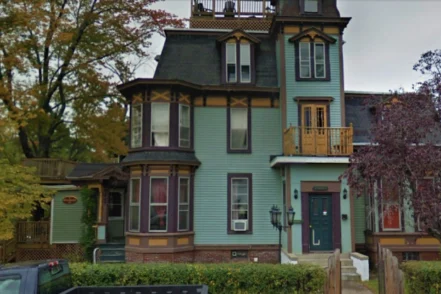 New Hampshire
New HampshireRiverbank House
96 Church Street Laconia, New Hampshire 03246
-
 New Hampshire
New HampshireBonfire Recovery Services
10 Grove Street Dover, New Hampshire 03820
-
 New Hampshire
New HampshireGreen Mountain Treatment Center
244 High Watch Road Effingham, New Hampshire 03882
-
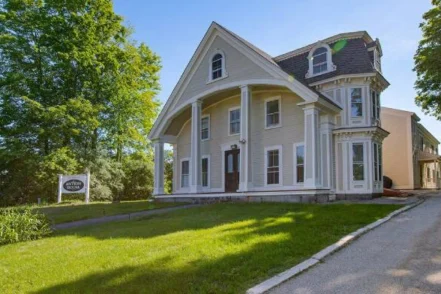 New Hampshire
New HampshireSobriety Centers of New Hampshire The Antrim House
55 Main Street Antrim, New Hampshire 03440
-
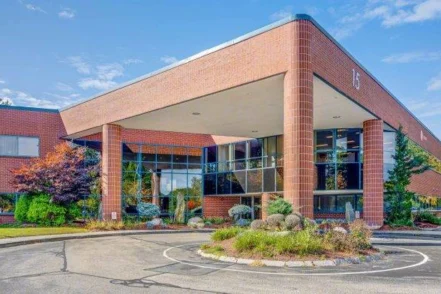 New Hampshire
New HampshireAware Recovery Care
15 Constitution Drive Bedford, New Hampshire 03110
-
 New Hampshire
New HampshireGranite Recovery Centers
6 Manor Pkwy Salem, New Hampshire 03079
-
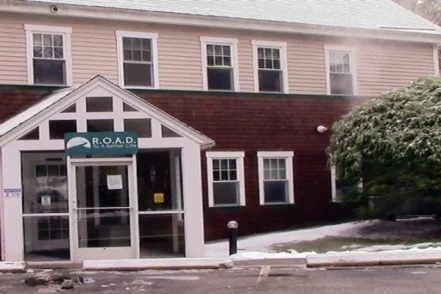 New Hampshire
New HampshireROAD To A Better Life Somersworth
255 Route 108 Somersworth, New Hampshire 03878
-
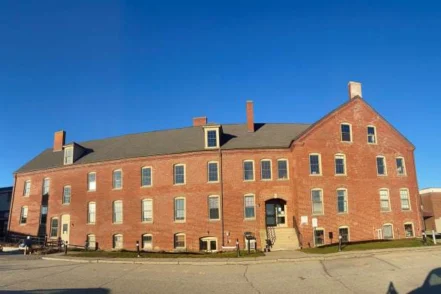 New Hampshire
New HampshireSoutheastern NH Alcohol and Drug Abuse Services
272 County Farm Road Dover, New Hampshire 03820
-
 New Hampshire
New HampshirePlymouth House
446 Main Street Plymouth, New Hampshire 03264
